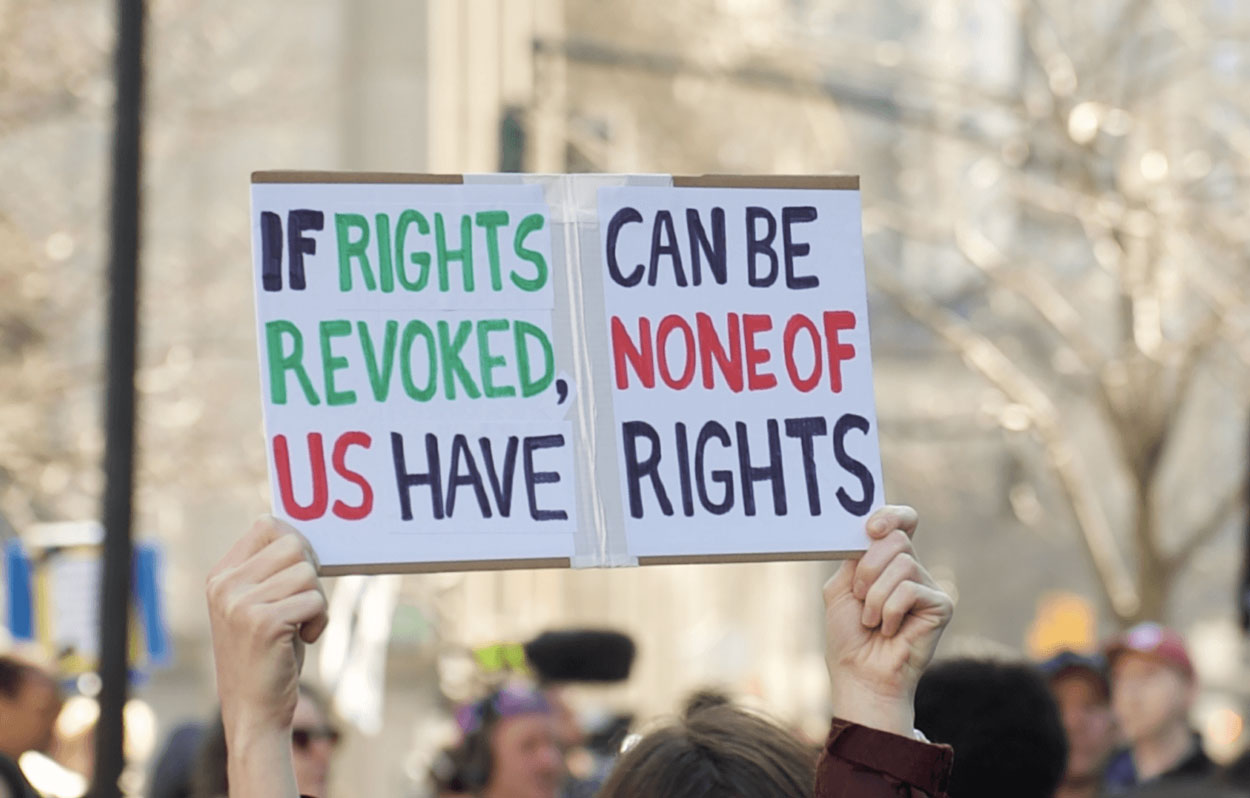The Politics of Annihilation and Disappearance.
This is a politics of annihilation—one that does not always kill outright but keeps entire populations in a state of unrelenting precarity, caught between survival and disappearance. As Judith Butler warns, this is the logic of governance that “produces precarity, sustaining populations on the edge of death, sometimes killing its members, and sometimes not.” It is a form of slow violence, where existence itself is made tenuous, where immigrants, dissidents, the poor, and the racialized are left in a state of permanent vulnerability, their lives dictated not by the rule of law but by the whims of power.
Trump’s ceaseless torrent of lies, his relentless branding of dissidents as “terrorists,” “Hamas supporters,” and “enemies from within,” along with his call for brutal retribution and the imprisoning of his foes—journalists, judges, politicians, and prosecutors—forms an insidious architecture of terror and lawlessness. This system is designed to silence, disappear, and annihilate those who resist. We must pause and reflect when Attorney General Bondi claims that a judge supports terrorism merely because he ruled against the Alien Enemy Act’s use for mass deportations. Or when, under the guise of a restraining government order, Dr. Rasha Alawieh—an esteemed Lebanese kidney transplant specialist and Brown University professor who holds a valid H-1B visa—was illegally deported. However, it is crucial to consider the racialized and religious context of this action. Dr. Alawieh, as a Muslim Arab woman, is not being targeted not for any criminal wrongdoing, but more than likely because of her identity.
The persecution of Khalil is not an isolated injustice but part of a broader, systemic pattern of state-sanctioned repression—one in which individuals of Muslim or Arab descent are disproportionately targeted, not for any crimes they have committed, but for who they are. As Jeffrey St. Clair aptly observes, Khalil is now facing deportation despite never having been charged with a crime. In reality, his only “offense” is daring to exercise his right to free speech—denouncing, with moral clarity, what countless international organizations and human rights groups have recognized as Israel’s genocidal war against Palestinians.
This is precisely why authoritarian white nationalists like Donald Trump, Marco Rubio, and Stephen Miller have seized upon Khalil, transforming him into a high-profile political prisoner. Their attack on him is inseparable from their broader war on dissent, on youth resistance, and on the right to condemn state-sanctioned atrocities. Khalil’s crime in their eyes is not violence, nor extremism, nor any violation of law—it is his refusal to be silent in the face of the illegal and morally depraved slaughter of innocent women and children in Gaza by Netanyahu and his far-right government.
What unnerves Trump and his enforcers is that Khalil, like so many other young people, refuses to bow before their authoritarian rule. His activism stands in direct defiance of the ideology they seek to impose—an ideology that demands obedience, that criminalizes resistance, that seeks to erase the very possibility of solidarity between oppressed peoples. Nowhere is this clearer than in the Trump administration’s willingness to wield the full force of a lawless, punishing state to crush those who dare hold power accountable.
The government has branded Khalil a threat, falsely accusing him of siding with terrorists, of making Jewish-Americans “feel unsafe,” of aligning with Hamas. Yet, as St. Clair makes clear, Khalil’s statements on Israel are strikingly diplomatic, rooted in a vision of justice that recognizes the inextricable ties between Palestinian and Jewish liberation. St. Clair quotes Khalil to make this point clear.
“As a Palestinian student, I believe that the liberation of the Palestinian people and the Jewish people are intertwined and go hand in hand, and you cannot achieve one without the other.” He described the movement as one “for social justice and freedom and equality for everyone.” Khalil told CNN during an interview in 2024: “There is, of course, no place for antisemitism. What we are witnessing is anti-Palestinian sentiment that’s taking different forms and antisemitism, Islamophobia, racism [are] some of these forms.”
Khalil’s case is not just about him. It is about the Trump administration’s broader assault on democracy, on protest, on the very right to resist injustice. He has become a symbol of a state determined to silence its critics, a state that punishes the young for their refusal to submit to its dictates. And in that, he stands as both a warning and an inspiration. Because if Khalil’s persecution tells us anything, it is that the struggle for justice is far from over—and that those in power will wield every instrument of state violence to suppress it.
Yet his fate is not an isolated tragedy; it is a harbinger of a deeper, more insidious transformation—the descent into a lawless regime that openly defies the courts, weaponizes ancient statutes like the Alien Enemies Act of 1798, and erases due process with impunity. Trump’s brazen push to expel hundreds of Venezuelan immigrants, without legal justification, is not an anomaly; it is a template, a warning shot for a future in which dissent itself is criminalized, where anyone—Palestinian, immigrant, student, protester—can be branded a “terrorist” and exiled from the nation’s conscience. As Norman Ornstein, no radical, warns with chilling precision: This is American Gestapo. But history has shown, time and again, that movements born in truth do not die under repression. They only grow stronger.
